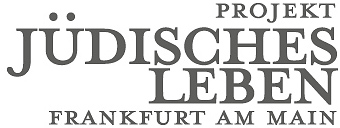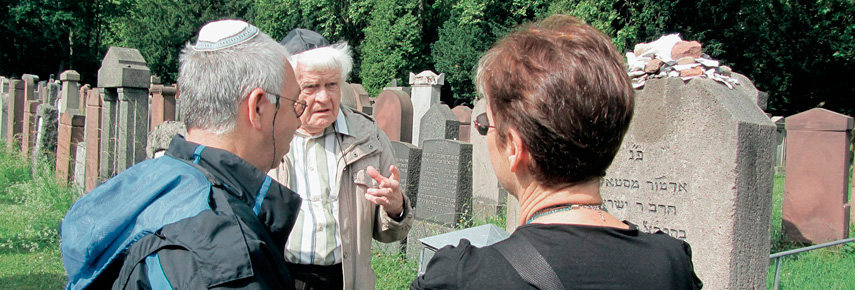Biographical Notes
Name
Micha Ramati, lives in Israel
Participation in the Visiting Program:
Micha Ramati: 2012
Grete Merom: 1987
Rudolf Baum: 1991
Mother:
Gretel Merom*, née Baum, born in 1913 in Frankfurt
attended Victoria-Schule, today Bettinaschule
1934 emigration to Palestine
2015: Gretel Merom receives the Order of Merit of the Federal Republic of Germany. Further Information see News
Mother’s Brother
Rudolf Baum*, born 1915, died 2009
Musterschule
1936 emigration to the USA
Home of the Family before emigration: Reuterweg 73
Address of father’s shop:
Kaiserstraße, later Am Kornmarkt: haberdadhery
Grandparents:
Norbert Nathan Baum and Julie, née Geiger
deportation to Lodz/Litzmannstadt on Oktober 19, 1941
There are Stumbling Stones reminding of the couple
Sources
- Projekt Jüdisches Leben in Frankfurt (PJLF): Interview with Gretel Merom, Christa Köhring, 1987
- PJLF: Interview with Rudolf Baum, Markus Mezger, June 1991
- PJLF: Report of Ellen Holz, 2012
- Speeches of Gretel Merom (1987) and Rudolf Baum (1991) in the Frankfurter Roemer, ed. by the Magistrat der Stadt Frankfurt am Main
- Deportiertendatenbank Frankfurt
- Bundesarchiv, Onlinegedenkbuch
- Jüdische Allgemeine vom 28.2.2013: Die Pionierin vom Main
- www.stolpersteine-frankfurt.de
- Gretel Merom: Ich erinnere – I remember. Jüdisches Leben in Frankfurt am Main und in Israel. Konstanz 2009
- Julie und Norbert Baum: Mein lieber Rudolf. My Dear Rudolf. Elternbriefe aus Frankfurt am Main an den emigrierten Sohn in den USA, Konstanz 2011
- Gretel Baum-Merom und Rudy Baum: Kinder aus gutem Hause. Von Frankfurt nach Israel und Amerika, Konstanz 2012
Photos:
- Gretel Merom und Micha Ramati
- Ellen Holz
- Renate Hebauf
Text:
Angelika Rieber
Translation:
Geoffrey Roberts

